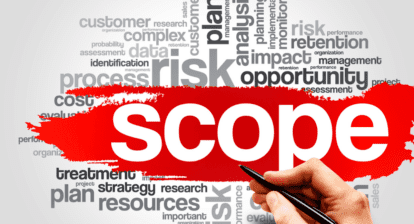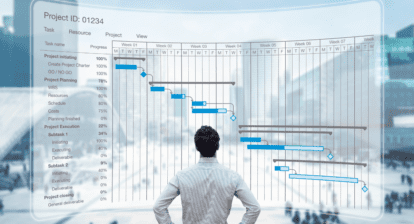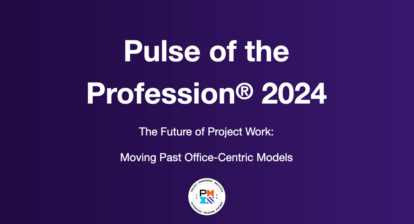
Work can sometimes feel like chaos and pandemonium. You have multiple activities that need constant monitoring and people that need to be managed so that projects stay on track. The day is filled with frustration and conflict and moves faster than the time you have. This situation is not uncommon in today’s management world.
The Pace of Today’s Workplace
A recent Harvard Business Review article discussed the increased speed in today’s workplace. When business leaders were asked what worries them most about their company’s future, most of these executives expressed concern about the organization’s inability to change fast enough to survive and thrive in an increasingly fast-paced digital world.
This change in the world means managers must work faster with more multitasking and longer workdays. More information must be processed with the same number of resources that were available when the world moved at a slower pace.
Impact of the Internet and Globalization
These changes are partly due to the creation of the Internet, which has made information more easily accessible and spreads information faster across the world. A recent study by Leftronic found that 90% of the world’s data was generated within the past two years alone. 40% of the world’s population has access to the internet, whereas only 8% of US households owned a personal computer in 1984. Five billion people worldwide own a mobile device, and 2.65 billion people use social media, with 1 in every 5 Americans being smartphone-dependent.
The Internet has also led to the globalization of human relationships. You can now have meetings with people from different places and cultures. Globalization from video meetings and access to knowledge online is reshaping human life. Your work is no longer limited to the people in your town or community.
The Pandemic’s Acceleration of Change
The pandemic has accelerated these changing times. In a recent article, Ravi Venkatesan, The Founder of the Global Alliance for Mass Entrepreneurship, suggested that our world was experiencing an extraordinary rate of change before the pandemic. Still, the pandemic sped up our change and showed us new work and communication methods that redefine how we work.
Since many of the traditional venues for work were closed during the pandemic, there was a need to find new ways to meet and manage projects. The pandemic also changed the way we create relationships at work. A greater appreciation for the value of relationships formed and disrupted the status quo of daily work interactions. The pandemic accelerated the recognition and need for significant changes in human behavior with project leadership.
Human Behavior Post-Pandemic
A recent blog with the IIL discussed the role of human behavior post-pandemic. The discussion focuses on how you build your culture, which becomes as critical as how you build a project system. A larger discussion on the value of core culture builders, like trust and communication, is needed as a part of the project management experience.
Chaos in Human Relationships and Binary Thinking
Chaos of change is also found in human relationships from increased binary thinking since it is tied to a fight-or-flight response. When someone reacts from a binary thinking perspective, you see flight behaviors of avoidance or fight behaviors like yelling or aggression. Your choices become limited to either/or, good/bad, wrong/right. You might find yourself in situations where you are demanded to pick a side. You are either with them or against them. This behavior contrasts with critical thinking skills, where there are many options. Critical thinking skills can help you see the value of many different views. Diversity becomes an asset, and innovation is a valued tool for problem-solving.
The Value of Critical Thinking
John Baldoni recognized that in our world of growing uncertainty, there is excellent value in having critical thinkers who can assess a situation, identify the potential where others may not, and create opportunities with swift decision-making. As a project manager, you can make a difference in this area for the sake of our companies and projects and your personal growth. Critical thinking skills help you move events and people forward in a way that brings cohesion and constancy to your work.
The challenge is that critical thinking skills may be considered a hindrance when the priority is trying to keep up with the speed of the workplace. Time is a commodity. The fear of not getting the work done mutes the available options. For managers, this is a challenging situation. The Workforce-Skills Preparedness Report” survey found that 60% of managers said critical thinking and problem-solving were “the soft skills lacking the most among recent college graduates.” This means that there is a chance that people coming into the workforce may have a more binary thinking perspective. Binary thinking limits options when addressing both workplace strategies and human interactions. You find that people are more inclined to want to find someone to blame or want to focus on the past, which increases chaos and leads you to pandemonium. Pandemonium occurs when change and chaos collide.
Managing Chaos and Maintaining Stability
To manage the chaos and keep pandemonium from taking over, an intentional plan can help you maintain the tasks that need to be completed and help you manage the human behaviors that are such a critical part of day-to-day life. As you speed through the day, it helps to be aware of the chaos and where it is coming from. Some questions that help maintain awareness include: Are people in fight or flight? Are work schedules manageable? Do you have documentation to show progress? Can you manage expectations when the C-Suite is focused on speed instead of critical thinking solutions? Can you manage your expectations about a reasonable amount of weekly work? As you look at creating a stable environment for change, you may find the only thing you can change is how you think about it, which will, in turn, change how you manage.
Take Control of Your Work in a Chaotic World!
Are you struggling to navigate the chaos and pandemonium of today’s fast-paced workplace? Our on-demand course, “Managing Chaos and Pandemonium in a Complex World,” led by the esteemed instructor Dr. Lynette Reed, is designed to empower you with the skills and strategies needed to thrive in a constantly changing environment.
What You’ll Learn:
- Effective Time Management: Learn how to make the most of your time, even in the face of increasing demands and tight schedules.
- Navigating Globalization: Understand the impact of the Internet and globalization on your work, and discover how to build successful relationships in a diverse and interconnected world.
- Adapting Post-Pandemic: Explore the lessons learned during the pandemic and discover new methods for meeting and managing projects in a rapidly evolving landscape.
- Critical Thinking Mastery: Develop critical thinking skills to tackle challenges with a diverse mindset, fostering innovation and problem-solving.
Why Enroll?
- Expert Insights: Benefit from the knowledge shared by Dr. Lynette Reed, an industry expert and thought leader.
- Practical Strategies: Gain actionable strategies to manage chaos, build strong relationships, and maintain stability.
- Transform Your Work: Take charge of your professional growth and enhance your ability to lead projects effectively.
Don’t let chaos control your work – take the first step toward a more empowered and strategic approach. Enroll in “Managing Chaos and Pandemonium in a Complex World” with Dr. Lynette Reed today!
Enroll Now – Your pathway to mastering the art of managing chaos and thriving in today’s dynamic workplace.







